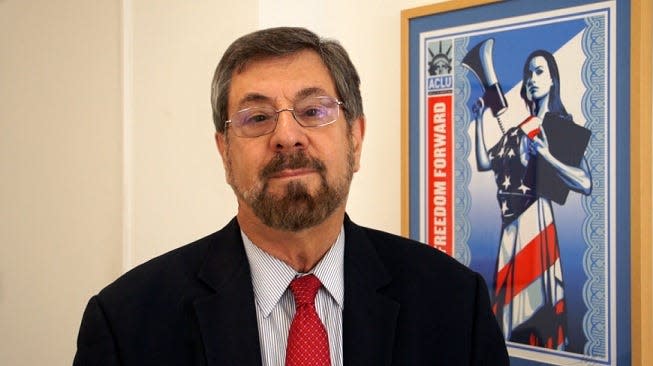Guest opinion: Living in Sam Alito’s Theocracy
All grand political compromises have defects, some more glaring than others. Our nation’s Constitution is no exception.
The drafters of the constitution ignored Abigail Adams’ earlier plea to husband John to “remember the ladies.“ It was not until 1920 when women’s fight for full citizenship secured the right to vote.
And, notoriously, the drafters left intact the “peculiar institution” of human enslavement.
But the Federalists did yield on one important matter — the demand for a guarantee of individual rights against the central government. It would take more than a century for those rights to be guaranteed against abuses by state and local governments.
James Madison is credited as the principal author of the Bill of Rights, which he is. But he was a reluctant advocate, forced to recognize that the failure to guarantee such fundamental rights as speech and religion jeopardized passage of the Constitution — and his ambition for higher office if he continued to oppose its inclusion.

To avoid the argument that the only fundamental rights protected would be those that were enumerated, Madison brilliantly included a guarantee that “The enumeration in the constitution, of certain rights, shall not be construed to deny or disparage others retained by the people.“
The threat to that social contract is one of the most troubling aspects of the shockingly dismissive tone and terrible consequences for freedom contained in the leaked draft opinion in Dobbs v. Jackson Women’s Health authored by Supreme Court Justice Samuel A. Alito, Jr. overturning Roe v. Wade and ending women’s constitutional right to obtain an abortion.
No jurist will acknowledge that they are imposing a religious view on the populace. But allowing state legislatures to give legal sanction to the view that “life begins at conception” and that “life” at that stage enjoys full legal protection does precisely that.
Our country is the most religiously diverse nation on the face of the earth, and the sacred texts of religious groups contain a variety of views on when life begins and when the termination of a pregnancy by abortion is permissible.
Given our Bill of Rights, how is it permissible to deny some religious groups the right to act in accordance with their religious commandments? And what of the millions of Americans who live their lives based on secular moral principles rather than the scripture of established religions. Have they no rights worthy of being protected?
More: Guest opinion: Whatever happened to separation of church and state?
More: Guest opinion: Florida should warn swimmers when there’s poop in the water
The genius of Madison’s Bill of Rights is that, at least on paper if not always in practice, a religious belief odious and distasteful to government officials or a tyrannical majority is nevertheless allowed to breathe free. Forcing the members of one religious group to make such important personal decisions as whether or when to begin a family by conforming to someone else’s theology is more religious tyranny than the religious freedom promised to all.
When life begins is an enormously complex theological and scientific issue on which there are significant differences between religious traditions. Just scratch the surface and note differing views about whether life begins at fertilization, or when there is a heartbeat, or at quickening when a woman feels movement, or at viability when a fetus can live outside the womb or at birth.
According to the Talmud, the primary source of Jewish law, conception creates potential life which is changed by the act of birth — changing a fetus into a person with a soul.
Islamic scripture teaches that after four months angels breathe a soul into the child in the womb, though an abortion may be permitted after 120 days if the pregnancy threatens the life of the woman.
A number of religious groups set aside the centuries old debate about “when life begins” and emphasize that any decision about abortion must respect a woman’s right to freedom of conscience (see the Resolutions of the Presbyterian Church, U.S.A.), and that legislation regarding abortion “must take special care to see that the individual conscience is respected…” (General Convention of the Episcopal Church).
There are echoes from those who wrote our founding documents in today’s healthy hostility towards the use of the power of government to restrict our private lives and personal freedoms.
So, if the authoritarian language at the heart of Alito’s leaked draft overturning Roe v. Wade shapes the Supreme Court’s final decision, as seems likely, state legislatures that will be permitted to impose severe restrictions on this very personal area of the lives of women and their families should not be surprised by the patriotic American response: defiance!
Howard L. Simon, Ph.D., served as Executive Director of the American Civil Liberties Union of Florida from 1997 to 2018.
This article originally appeared on Fort Myers News-Press: Supreme Court leaked abortion draft: individual rights vs. government

